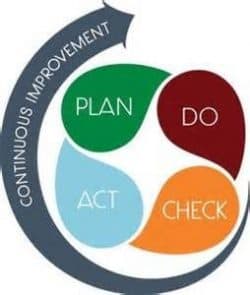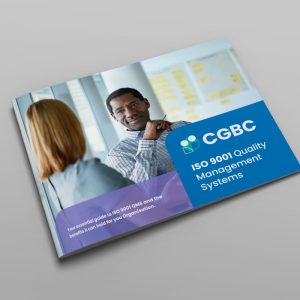The Process Approach, while by no means a new concept within the world of ISO, is a requirement that has acquired greater relevance in the 2015 revision of ISO 9001. But just what does ‘process approach’ mean and how has its significance increased vis a vis QMS and the updated standard?

What Is A Process Approach?
The ‘Process Approach’ is a management strategy that incorporates the Plan-Do-Check-Act (PDCA) four-step management method and risk-based thinking. Basically, it means that processes are managed and controlled: by understanding what an organisation’s key processes are, management can better assess how they fit together.
“Consistent and predictable results are achieved more effectively and efficiently when activities are understood and managed as interrelated processes that function as a coherent system’ – Introduction of ISO 9001:2015.
What Are The Key Changes from ISO 9001:2008 To ISO 9001:2015
While the requirement for a process-based QMS is nothing new (“establish, implement, maintain and continually improve” was a requisite of previous iterations of ISO 9001) the following key changes should be noted:
- For those organisations already ISO 9001:2008 certified, a significant factor in transitioning to ISO 9001:2015 is the extent to which the ‘process approach’ has been adopted.
- Clause 4.4 of the revised standard is exacting in its requirements for the adoption of a ‘process approach’ e.g. organisations must monitor, measure and use related performance indicators to determine effective operation and controls.
- Leadership must promote, engage and support employees to follow a process approach.
Why Is A Process Approach Of Such Importance?
Most organisations, particularly larger ones, are structured into departments; these tend to be run by KPI driven department heads who rarely if ever interact with external clients, except when involved in an escalation process. As a result, departmental top brass tend to be detached from day to day Business As Usual and the levels of satisfaction, or not, their customers are experiencing.
The process approach introduces cross-departmental management thereby ensuring start to finish accountability.
This ‘horizontal management team’ has full sight from process initiation to completion. They understand what key stakeholders want and have the authority to take appropriate result-driven actions. Their loyalties lie with their assigned ‘process’ responsibilities rather than with their respective departments.
How Effective Is A Process Approach In A QMS?
Using a process approach in a Quality Management System (QMS) can result in:
- better understanding of and consistency in meeting requirements
- the ability to view processes in terms of their value-add
- improved and effective process performance (based on analysis & evaluation of data).
Three Steps To Implementing A Process Approach
As we mentioned earlier, the ISO process approach incorporates the PDCA cycle which means that organisations must:
1. Ascertain required process inputs and expected outputs
Focus on core QMS processes such as Training, Service Delivery, Operations, Business Process Outsourcing, Project Management, Finance etc. Question how they help meet client expectations and appropriate regulations, then map out their interoperability.
2. Assign responsibilities and delegate authorities for processes
Decide who is responsible for what, paying especial attention to cross-departmental interdependencies and interactions. Involve employees from the get go, provide relevant training and documented information, and monitor and manage how processes are being carried out.
3. Identify both risks and opportunities for process improvement and make relevant plan to address both
Risk-based thinking requires organisations to determine negatives (risks) and positives (opportunities) to processes, products, services and the QMS. This means taking appropriate steps to both monitor and measure how these processes are being performed.
Driving Engagement With QMS
Early-stage stakeholder engagement will almost certainly guarantee the careful planning, structure and ongoing optimisation that a process-based QMS typically requires. Employees should be on the constant look-out for opportunities to meet clients’ requirements and enhance the customer experience. For more information about the driving engagement with a process-based QMS contact us on 01 – 620 4121 to have an initial conversation with one of our expert consulting team.
You can learn more about ISO 9001:2015, QMS and the process approach by attending our one day training course presented by Susanne Carpenter on 3rd November, 2017. Full details on our website.





